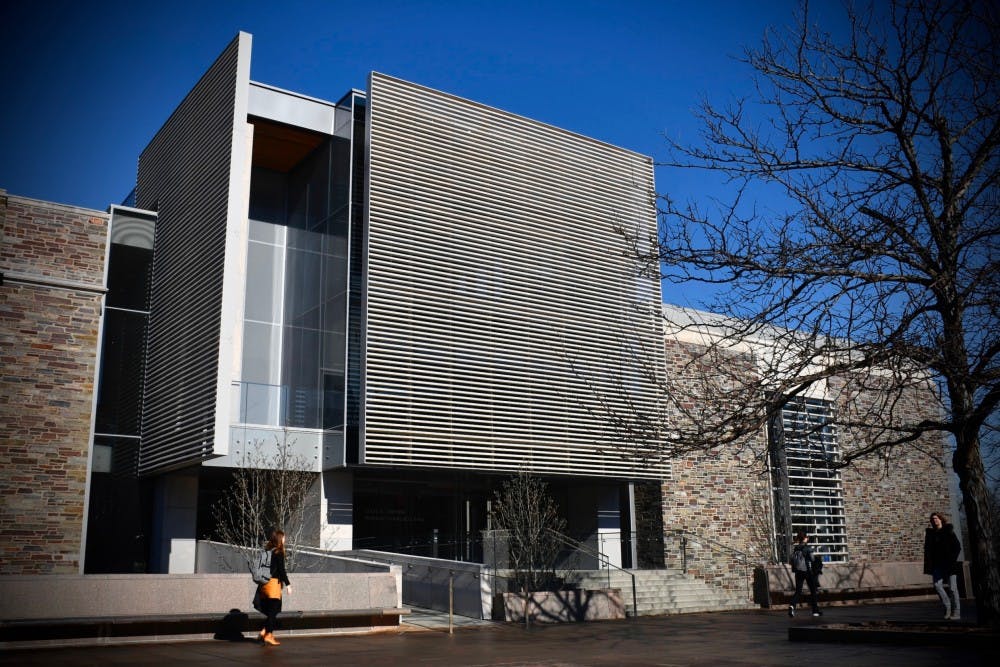The Trump administration will revoke the visas of certain graduate students and researchers with ties to entities which support Beijing's military strategy, according to a May 28 presidential proclamation. The move could affect “a large portion of Princeton's graduate student and post-doc community,” according to the Graduate Student Government (GSG).
The Departments of State and Homeland Security have not yet issued specific guidance as to who exactly will be impacted, so “it is not possible to determine which individuals are subject to it until the government provides more detail,” according to University Spokesperson Ben Chang.
The New York Times reported in late May that the visa cancelation “could affect at least 3,000 students” who have studied, researched, or worked at an institution in China that supports the government’s “military-civil fusion strategy,” defined as the gathering of foreign technologies for use by the People’s Liberation Army (PLA).
“This proclamation is extremely distressing for Chinese students who are afraid for their statuses and for what this proclamation may mean for their ability to study at Princeton,” wrote GSG President Karina Alventosa in a statement to The Daily Princetonian. “The restrictions would impact the incoming class as well as anyone who needs to renew their visa.”
GSG also expressed concern for students who travelled home to quarantine with family during the pandemic who may then be forbidden from reentering the country.
The proclamation provides a few exceptions — most notably for undergraduates, students studying disciplines unrelated to military strategy, and U.S. permanent residents and their spouses.
The Davis International Center and the Graduate School will collaborate to assist individual students who may be impacted, according to Chang.
“Princeton University believes talent, from every source and background, is the lifeblood of innovation,” wrote Director of the Davis Center Albert Rivera in a statement on behalf of the center. “We will continue to advocate for policies that permit and facilitate the free flow of talent — talent of the kind that fortified America in the past and that will be essential to its future.”

Proposed legislation in the Senate seeks to expand the reach of the presidential proclamation.
The Secure Campus Act, proposed by Sen. Tom Cotton (R-Ark.), Sen. Marsha Blackburn (R-Tenn.), and Congressman David Kustoff (R-Tenn.), would ban all Chinese nationals from obtaining visas to the United States for graduate or post-graduate studies in STEM (science, technology, engineering, and mathematics) fields, regardless of affiliation with entities that support the PLA.
The legislation would not apply to those from Taiwan, Hong Kong, or members of religiously or ethnically oppressed groups.
It would also impose restrictions on participants in Chinese foreign talent-recruitment programs, such as the Thousand Talents Plan. The Plan, established in 2008, attracts Chinese scientists who study overseas and recruits foreign experts through funding, grants, and appointments to Chinese universities.

The Thousand Talents Plan provided funding for Harvard University chemistry and chemical biology chairman Charles M. Lieber, who was arrested in Jan. of this year for failing to disclose his financial ties with the Chinese government.
In a press release, Cotton cited espionage by the Chinese Community Party and national security interests as the motivation for the legislation. Blackburn echoed this, stating that “Beijing exploits student and research visas to steal science, technology, engineering and manufacturing secrets from U.S. academic and research institutions. We’ve fed China's innovation drought with American ingenuity and taxpayer dollars for too long.”
A nationwide petition against the legislation began circulating among University graduate students and postdoctoral fellows on May 30. On May 31, it was updated to respond to the presidential proclamation.
The petition, entitled “Reject Xenophobia in Higher Education,” calls on graduate students, University affiliates, and other members of the community to fight racism and xenophobia, especially in light of growing anti-Asian sentiment since the first cases of COVID-19 and protests over police killings of black Americans.
“These politicians are drawing on racist fears to further divide us, when we need to work together to protect our communities,” the petition states.
It goes on to call on University officials and leadership to speak out against the petition, citing that the legislation and executive order are not only divisive, but counterproductive for American innovation.
“In the short term, this bill will do nothing to protect our campuses. In the long term, it will hurt our collaborators, weaken the quality of our universities, and lower the impact of our research,” the petition reads. “International graduate students are an integral part of our campus community and they have the same right as anyone else to pursue higher education in the US.”
As of publication, there were 2,964 signatures, 20 of which are from individuals affiliated with the University.
Both the presidential proclamation and the proposed legislation reflect the Trump administration’s goals of “keeping persistent pressure on China” and “preserving American superiority.”
In 2018, the State Department reversed an Obama-era policy, limiting visas to one year for Chinese graduate students working in sensitive fields.
In 2019, the F.B.I. banned some Chinese academics from visiting the United States over similar fears of stealing secrets and intellectual property.
Meanwhile, pressure on American academic institutions to investigate allegations of espionage is growing. Last year, the NIH and FBI probed more than 70 institutions with scientists suspected of stealing biomedical research and data, many of whom were of Chinese descent. Some fear that American innovations are being stolen for the benefit of Chinese companies or the Communist Party.
Others, however, argue that the investigations unfairly target ethnic Chinese scientists, some of whom are naturalized American citizens. Some of them express that they are being prevented from receiving grants and other resources key to their research by concerts that they pose a security risk.
The University expressed its commitment to its international students from China.
“We will also continue to advocate for the possibility of student visas for all admitted students,“ Chang wrote. “Regardless of national origin.”








